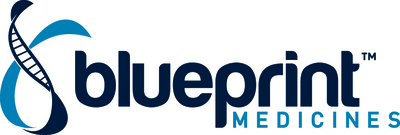NEJM Evidence Publishes Results from Registrational PIONEER Trial Demonstrating Significant Clinical Benefits of AYVAKIT® (avapritinib) in Patients with Indolent Systemic Mastocytosis
-- First and only treatment approved by FDA for indolent SM --
On May 22, 2023, AYVAKIT became the first and only medicine approved by the
"Patients with indolent systemic mastocytosis can experience a range of severe, life-altering symptoms and emotional hardships. The disorder can significantly affect patients' ability to serve as active members of their families, workplaces and broader communities, and may lead individuals to 'live in a bubble' at home in an attempt to avoid unpredictable triggers," said Mariana Castells, M.D., Ph.D., Director, Mastocytosis Center, Brigham and Women's Hospital and co-first author of the paper. "Since I began specializing in mast cell disorders several decades ago, I have been waiting for a treatment that targeted the primary root cause of indolent systemic mastocytosis and enabled broad clinical benefits for patients with uncontrolled disease despite significant polypharmacy use. The impact of AYVAKIT across trial endpoints – from mast cell burden to symptoms and quality of life – offers the opportunity to redefine the standard of care in indolent systemic mastocytosis and brings a renewed sense of hope for all those living with the disorder."
"This publication features the largest dataset ever reported in indolent systemic mastocytosis and the first positive registrational study for this disease, representing a landmark achievement in our long-term collaboration with clinical experts and the systemic mastocytosis community to advance patient care," said Becker Hewes, M.D., Chief Medical Officer at Blueprint Medicines. "Our deep commitment, knowledge and understanding of systemic mastocytosis has enabled us to develop a transformative targeted treatment that can significantly improve outcomes for patients. Blueprint Medicines has been pioneering research and development in the field of systemic mastocytosis for over a decade, and following the approval of AYVAKIT in indolent systemic mastocytosis, we are focused on delivering this major therapeutic advancement to a broad range of patients with the disease."
Highlights from the NEJM Evidence Publication
PIONEER is a randomized, double-blind, placebo-controlled trial in which 141 patients received AYVAKIT 25 mg once daily plus best supportive care (AYVAKIT) and 71 patients received placebo plus best supportive care (placebo). Disease symptoms were assessed using the ISM Symptom Assessment Form (ISM-SAF). As previously reported, AYVAKIT met the primary and all key secondary endpoints, which were evaluated from baseline to 24 weeks, and showed deepening clinical efficacy through 48 weeks of treatment. Overall, 96 percent of patients with AYVAKIT completed 24 weeks of treatment and opted to cross over to the open-label extension study.
Key published results include:
- Patients treated with AYVAKIT achieved rapid, durable and statistically significant reductions on all measures of pathological mast cell burden, including serum tryptase, KIT D816V variant allele fraction and bone marrow mast cells.
- AYVAKIT achieved statistically significant and clinically meaningful benefits in overall symptoms – as measured by the ISM-SAF Total Symptom Score (TSS) – compared to placebo at 24 weeks, with improvements deepening through 48 weeks. In addition, AYVAKIT showed improvements over placebo on the most severe symptom and across all individual symptoms measured.
- AYVAKIT showed clinically meaningful improvements in multiple exploratory endpoints of quality of life, including a disease-specific measure – Mastocytosis Quality of Life Questionnaire (MC-QoL) – and general health status measures such as European Quality of Life Visual Analogue Scale (EQ-VAS), Patient Global Impression of Severity (PGIS) and 12-Item Short-Form Health Survey (SF-12).
- AYVAKIT showed a favorable safety profile, with most adverse events (AEs) mild to moderate in severity. The serious AE rate was 5.0 percent for AYVAKIT and 11.3 percent for placebo. The most common treatment-emergent AEs for AYVAKIT (incidence ≥5 percent and at least twice the rate of placebo) were flushing, edema, increased blood alkaline phosphatase and insomnia.
The paper, titled "Avapritinib versus Placebo in Indolent Systemic Mastocytosis," was published in NEJM Evidence on May 23, 2023 and can be found here: https://evidence.nejm.org/doi/full/10.1056/EVIDoa2200339.
About AYVAKIT (avapritinib)
AYVAKIT (avapritinib) is a precision therapy approved by the FDA for the treatment of three indications: adults with ISM, adults with advanced SM, including aggressive SM (ASM), SM with an associated hematological neoplasm (SM-AHN) and mast cell leukemia (MCL), and adults with unresectable or metastatic gastrointestinal stromal tumor (GIST) harboring a PDGFRA exon 18 mutation, including PDGFRA D842V mutations. For more information, visit AYVAKIT.com. This medicine is approved in Europe (AYVAKYT®) for the treatment of adults with ASM, SM-AHN or MCL, after at least one systemic therapy, and adults with unresectable or metastatic GIST harboring the PDGFRA D842V mutation. Please click here to see the full U.S. Prescribing Information for AYVAKIT, and click here to see the European Summary of Product Characteristics for AYVAKYT. AYVAKIT/AYVAKYT is not approved for the treatment of any other indication in the U.S. or Europe.
To learn about ongoing or planned clinical trials, contact Blueprint Medicines at medinfo@blueprintmedicines.com or 1-888-BLU-PRNT (1-888-258-7768). Additional information is available at blueprintclinicaltrials.com or clinicaltrials.gov.
About Systemic Mastocytosis
Systemic mastocytosis (SM) is a rare disease driven by the KIT D816V mutation in about 95 percent of cases. Uncontrolled proliferation and activation of mast cells result in chronic, severe and often unpredictable symptoms across multiple organ systems. The vast majority of those affected have indolent systemic mastocytosis (ISM). A broad range of symptoms, including anaphylaxis, maculopapular rash, pruritis, diarrhea, brain fog, fatigue and bone pain, frequently persist in patients with ISM despite treatment with multiple symptom-directed therapies. This burden of disease can lead to a profound, negative impact on quality of life. Patients often live in fear of severe, unexpected symptoms, have limited ability to work or perform daily activities, and isolate themselves to protect against unpredictable triggers. Historically, there had been no approved therapies for the treatment of ISM.
A minority of patients have advanced SM, which encompasses a group of high-risk SM subtypes including ASM, SM-AHN and MCL. In addition to mast cell activation symptoms, advanced SM is associated with organ damage due to mast cell infiltration and poor survival.
Important Safety Information
Intracranial Hemorrhage—Serious intracranial hemorrhage (ICH) may occur with AYVAKIT treatment; fatal events occurred in <
Monitor patients closely for risk factors of ICH which may include history of vascular aneurysm, ICH or cerebrovascular accident within the prior year, concomitant use of anticoagulant drugs, or thrombocytopenia.
Symptoms of ICH may include headache, nausea, vomiting, vision changes, or altered mental status. Advise patients to seek immediate medical attention for signs or symptoms of ICH.
Permanently discontinue AYVAKIT if ICH of any grade occurs. In Advanced SM patients, a platelet count must be performed prior to initiating therapy. AYVAKIT is not recommended in Advanced SM patients with platelet counts <50 x 109/L. Following treatment initiation, platelet counts must be performed every 2 weeks for the first 8 weeks. After 8 weeks of treatment, monitor platelet counts every 2 weeks or as clinically indicated based on platelet counts. Manage platelet counts of <50 x 109/L by treatment interruption or dose reduction.
Cognitive Effects—Cognitive adverse reactions can occur in patients receiving AYVAKIT and occurred in
Photosensitivity—AYVAKIT may cause photosensitivity reactions. In all patients treated with AYVAKIT in clinical trials (n=1049), photosensitivity reactions occurred in
Embryo-Fetal Toxicity—AYVAKIT can cause fetal harm when administered to a pregnant woman. Advise pregnant women of the potential risk to a fetus. Advise females and males of reproductive potential to use an effective method of contraception during treatment with AYVAKIT and for 6 weeks after the final dose of AYVAKIT. Advise women not to breastfeed during treatment with AYVAKIT and for 2 weeks after the final dose.
Adverse Reactions—The most common adverse reactions (≥
The most common adverse reactions (≥
Drug Interactions—Avoid coadministration of AYVAKIT with strong or moderate CYP3A inhibitors. If coadministration with a moderate CYP3A inhibitor cannot be avoided in patients with Advanced SM, reduce dose of AYVAKIT. Avoid coadministration of AYVAKIT with strong or moderate CYP3A inducers.
To report suspected adverse reactions, contact Blueprint Medicines Corporation at 1-888-258-7768 or FDA at 1-800-FDA-1088 or http://www.fda.gov/medwatch.
Please click here to see the full Prescribing Information for AYVAKIT.
About the PIONEER Trial
PIONEER is a randomized, double-blind, placebo-controlled, registrational trial evaluating AYVAKIT in patients with ISM. The trial includes three parts: dose-finding Part 1, registrational Part 2 and open-label extension Part 3. Key trial endpoints include the change in patient-reported disease symptoms as assessed by the ISM-SAF TSS, patient-reported quality of life, measures of mast cell burden and safety. Patients who completed Part 1 or 2 were eligible to participate in Part 3. All patients receive AYVAKIT treatment during Part 3, including those rolling over from the placebo arm. For more information about the PIONEER trial, please visit www.clinicaltrials.gov (ClinicalTrials.gov Identifier: NCT03731260).
About Blueprint Medicines
Blueprint Medicines is a global precision therapy company that invents life-changing therapies for people with cancer and blood disorders. Applying an approach that is both precise and agile, we create medicines that selectively target genetic drivers, with the goal of staying one step ahead across stages of disease. Since 2011, we have leveraged our research platform, including expertise in molecular targeting and world-class drug design capabilities, to rapidly and reproducibly translate science into a broad pipeline of precision therapies. Today, we are delivering our approved medicines to patients in the United States and Europe, and we are globally advancing multiple programs for systemic mastocytosis, lung cancer, breast cancer and other genomically defined cancers, and cancer immunotherapy. For more information, visit www.BlueprintMedicines.com and follow us on Twitter (@BlueprintMeds) and LinkedIn.
Cautionary Note Regarding Forward-Looking Statements
This press release contains forward-looking statements within the meaning of the Private Securities Litigation Reform Act of 1995, as amended, including, without limitation, statements regarding Blueprint Medicines' views with respect to the implications of the FDA approval of AYVAKIT/AYVAKYT for SM patients; the potential benefits of Blueprint Medicines' current and future approved drugs or drug candidates in treating patients, including expectations regarding the potential of AYVAKIT/AYVAKYT to address SM subtypes; and Blueprint Medicines' strategy, goals and anticipated milestones, business plans and focus. The words "aim," "may," "will," "could," "would," "should," "expect," "plan," "anticipate," "intend," "believe," "estimate," "predict," "project," "potential," "continue," "target" and similar expressions are intended to identify forward-looking statements, although not all forward-looking statements contain these identifying words. Any forward-looking statements in this press release are based on management's current expectations and beliefs and are subject to a number of risks, uncertainties and important factors that may cause actual events or results to differ materially from those expressed or implied by any forward-looking statements contained in this press release, including, without limitation, risks and uncertainties related to our ability and plans in continuing to expand Blueprint Medicines' commercial infrastructure, and successfully launching, marketing and selling current or future approved products; Blueprint Medicines' ability to successfully expand the approved indications for AYVAKIT/AYVAKYT or obtain marketing approval for AYVAKIT/AYVAKYT in additional geographies in the future; the delay of any current or planned clinical trials or the development of our current or future drug candidates; Blueprint Medicines' advancement of multiple early-stage efforts; Blueprint Medicines' ability to successfully demonstrate the safety and efficacy of its drug candidates and gain approval of its drug candidates on a timely basis, if at all; the preclinical and clinical results for Blueprint Medicines' drug candidates, which may not support further development of such drug candidates either as monotherapies or in combination with other agents or may impact the anticipated timing of data or regulatory submissions; actions of regulatory agencies, which may affect the initiation, timing and progress of clinical trials; Blueprint Medicines' ability to obtain, maintain and enforce patent and other intellectual property protection for its products or any drug candidates it is developing; Blueprint Medicines' ability to develop and commercialize companion diagnostic tests for its products or any of its current and future drug candidates; Blueprint Medicines' ability to successfully expand its research platform and the costs thereof; and the success of Blueprint Medicines' current and future collaborations, partnerships or licensing arrangements. These and other risks and uncertainties are described in greater detail in the section entitled "Risk Factors" in Blueprint Medicines' filings with the Securities and Exchange Commission (SEC), including its Annual Report on Form 10-K for the year ended December 31, 2022, as filed with the SEC on February 16, 2023, and any other filings that Blueprint Medicines has made or may make with the SEC in the future. Any forward-looking statements contained in this press release represent Blueprint Medicines' views only as of the date hereof and should not be relied upon as representing its views as of any subsequent date. Except as required by law, Blueprint Medicines assumes no obligation to update or revise these forward-looking statements for any reason, even if new information becomes available in the future.
Trademarks
Blueprint Medicines, AYVAKIT, AYVAKYT and associated logos are trademarks of Blueprint Medicines Corporation.
![]() View original content to download multimedia:https://www.prnewswire.com/news-releases/nejm-evidence-publishes-results-from-registrational-pioneer-trial-demonstrating-significant-clinical-benefits-of-ayvakit-avapritinib-in-patients-with-indolent-systemic-mastocytosis-301831586.html
View original content to download multimedia:https://www.prnewswire.com/news-releases/nejm-evidence-publishes-results-from-registrational-pioneer-trial-demonstrating-significant-clinical-benefits-of-ayvakit-avapritinib-in-patients-with-indolent-systemic-mastocytosis-301831586.html
SOURCE Blueprint Medicines Corporation








